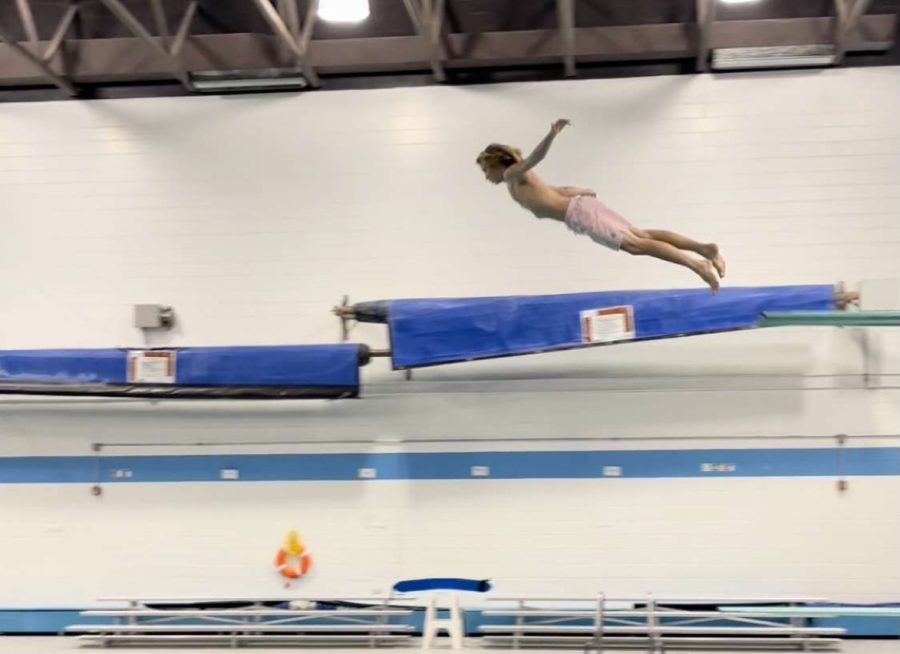Slaps and smacks: A part of the diving process
More stories from Tim Malatia
Junior Jordan Scott prepares for impact after attempting a new dive.
Junior Jordan Scott stands poised at the end of the diving board, and takes a deep breath. He launches himself into a backwards rotation, but his body is off in timing. His face scrunches as he braces for the impact of the water in a perfect belly flop.
Failure is a stepping stone in the process of improvement.
Junior Jordan Scott from the dive team talks about how he views his failed attempts during practice.
“I view it as a part of practice, I think that is the only way to improve is if you fail. If you always go for stuff that you know how to do, you won’t improve,” Scott said.
Scott talks about the methods that he has used in order to improve his diving skills.
“Repetition and being able to accept failure so you can repeat and try the dive over and over again,” Scott said.
Head swim and dive coach Bryan Szweda talks about the importance of failure for his divers, when trying out new skills in practice.
“Failure is a chance to learn. It gives them an opportunity to try new things, and not be afraid of doing new things. If they fail, that is okay, it is better to try and fail than not try at all,” Szweda said.
Szweda has seen many failed dive attempts throughout his years as a coach, and talks about how often divers nail a new skill on the first attempt.
“Never. I would say that doesn’t happen. As they learn new dives, there are going to be some bumps and there are going to be some times where they smack and that is something if you are a diver, that you are aware of. It doesn’t make it fun, but they are not going to nail a dive on the first time they do it,” Szweda said.
While in the process of learning a new dive, slaps and smacks are no stranger to Scott, and he talks about how long it takes him before being able to consistently perform a new trick.
“Typically, I am prepping for that skill for about two weeks. There’s just a lot of smacking and slamming into the water,” Scott said.
Szweda brings up the mental aspect of diving and gives advice to anyone struggling with improvement.
“There are times where divers get a mental block, and it can make it difficult for them to keep going, and diving is one of the most mental sports that exists. You have to be in the right mental frame of mind to do some of these things and just making sure they understand it is OK to fail, to get back up on that board and try again and it will come. It is OK to fail, learn from that failure,” Szweda said.

